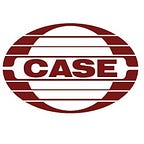By: Sara Skejo CASE Analyst; Katarzyna Sidło, Political Economist
Last Friday (May 18th), the European Commission announced the measures it will take to protect the European Union (EU) companies from adverse effects of United States’ withdrawal from the Joint Comprehensive Plan of Action (JCPOA). The deal, signed between the United States, China, France, Russia, the United Kingdom, Germany, and the EU on the one hand and Iran on the other, was designed to limit the latter’s nuclear activities in return for relief from economic sanctions. Having pulled the US out of the JCPOA, Donald Trump gave companies until August 6th (for automobile and civil aviation sectors) and November 4th (for energy and finance sectors) to scrap all existing contracts in Iran or face punitive measures.
For the EU, US withdrawal from the deal is worrying on many levels, most importantly because it threatens the agreement’s very existence. Not less crucial, however, is the fact that the US sanctions, being extra-territorial, affect all businesses — no matter where located — provided that they are controlled by Americans, have a subsidiary in the US, or conduct their transactions using US dollars. They are also more than likely to affect European companies to a far greater extent than the US ones. The US total trade with Iran in 2017 was worth only USD 201 million. In case of the EU, this number stood at EUR 20.1 billion (USD 24.6 billion), marking 83.9% and 31.5% increases in the value of EU imports from and exports to Iran, respectively. While the former are mostly energy-related, with more than 89% being mineral fuels, EU exports to Iran are mostly machinery and transport equipment (51%), chemicals (18%), and manufactured goods (9%).
Among the companies in dire straits because of the sanctions is Airbus, a French-based plane manufacturer, which in December 2016 closed a USD 18–20 billion deal to deliver 100 planes to the Iranian national flag carrier, IranAir. Another French company, the oil firm Total, will need to decide on the future fate of the provisional agreement to develop the South Pars gas field, signed in 2017 as the first engagement by a western oil major since the sanctions were lifted. Last week, the company announced that it will pull out of the deal should it not be able to secure a sanctions waiver. Royal Dutch Shell, which also signed a provisional agreement in relation to oil and gas exploration with Iran, is still evaluating its options.
A number of car manufacturers have reasons to worry as well. Renault struck a EUR 660 million trilateral production agreement with Industrial Development and Renovation Organization of Iran and a local private company Negin Khodro. Group PSA’s Peugeot and Citroen signed two separate joint venture deals with two main Iranian car companies, IKCO and SAIPA. Germany’s Mercedes-Benz Trucks entered into agreement with the Iranian company Iran Khodro, and Volkswagen sealed a deal with a local Iranian importer Mammut Khodro.
In a bid to secure the interests of these and other companies and to protect the European economic sovereignty — as well as to save the Iranian deal — the EC announced that it would introduce a number of measures, most importantly activating the so-called Blocking Statute. The Statue will prohibit EU companies from complying with the US-imposed sanctions, any measures adjudged by American courts will be abolished in the EU, and the companies which suffer material damage from the sanctions will be able to claim damages. The statue is to be effective before August 6th, when the first round of sanctions is to come into effect, but to enter into force it still needs an approval from the European Parliament and the Council.
The current Blocking Statue resembles the EU action to deflect a 1996 US embargo against Cuba, when the EU’s threat to introduce a similar measure caused the US to back down and allow European companies to trade with Cuba. Whether the Europeans manage to achieve the same effect this time is not very likely, although the current US foreign policy is unpredictable enough to discourage one from making bets.
What is certain, however, is that if the Statue comes into force, it may very well help to mitigate the effects of the sanctions on small and medium companies; many of them will be able to go around them simply by switching into conducting their business in euros in any case. Big multinationals can find themselves in a Catch-22, though. If they do comply with the American sanctions, the will face punitive measures from the EU. If they do not, they will be punished by the US courts. The best solution (both for the EU and for the continuity of the Iranian deal) would therefore be to convince the US to grant EU companies sanction waivers, but judging by Mr. Trump’s latest comments, European leaders should not hold their breath. As the European Council President Donald Tusk observed, in this situation one “could sit and think, with friends like that, who needs enemies”.
